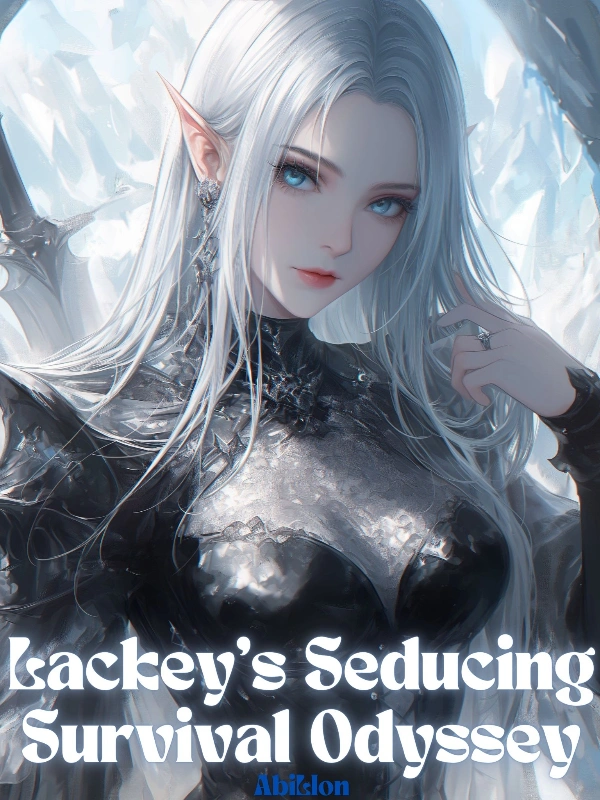Chapter 24: Interwar Period – The Sudetenland Crisis (1)
Translated by Vine | Proofread by Lust
For the latest updates, visit: ProNovels.com
Join our Discord for release updates: https://discord.gg/Eh2ayfR4FB
The Austrian plebiscite on unification with Germany had passed with a staggering 97% approval.
Considering the German army was guarding the ballot boxes, he was more surprised by the 3% who had voted against it.
Austria was now officially German territory, and the Austrian army was being integrated into the Wehrmacht.
With the occupation of Austria over, most of the German troops were withdrawn, and he was able to return to Berlin.
The Wehrmacht High Command was pleased with the influx of mountain troops experienced in alpine warfare.
Heinz Guderian had managed to lead the vanguard of the armored advance to Vienna during the Anschluss, despite the logistical nightmare, even resorting to requisitioning fuel from civilian gas stations and abandoning broken-down tanks along the way.
This success had silenced the conservative generals who had been skeptical of the tank as a weapon of war and had strengthened Hitler’s position, as he had been a strong supporter of Guderian’s mechanization policies.
Interest in armored warfare among younger officers had surged, and he and Michael, having attended Guderian’s lectures and acquired some basic knowledge, had been transferred to the Panzerwaffe on Model’s recommendation… or rather, his orders.
So, Model’s insistence on them attending Guderian’s lectures had been part of his plan. Model was quite the “just follow orders” type of general.
Wolfram von Richthofen had also returned to Germany while he had been in Austria, and they had a chance to reminisce about their time in the Condor Legion.
The key players of World War II were assembling on the stage.
He had finally received an invitation from Ewald von Kleist-Schmenzin to attend the May meeting of the Kleist Group, along with his father.
—
May 1, 1938
Berlin, Germany
After the annexation of Austria, Germany was swept by a wave of nationalist fervor. Hitler and the Nazis’ popularity had soared after achieving the long-sought dream of Greater Germany, eclipsing their past misdeeds, like the Beer Hall Putsch, the Night of the Long Knives, and the persecution of Jews.
From the Sudetenland in Czechoslovakia to Danzig in Poland and Memel in Lithuania, German minorities in territories lost after the last war were clamoring for reunification with Germany, causing unrest. Hitler, invoking the principle of self-determination, declared his intention to ‘liberate’ the Sudeten Germans from Slavic ‘oppression,’ and the Germans cheered him on.
The principle of self-determination, used by the victorious Allied powers to dismantle the defeated Central Powers after World War I, had become a weapon in the hands of Hitler and the Nazis twenty years later.
“Welcome, Captain Schacht. Don’t expect too much.”
“Thank you for the invitation, Fräulein Jung.”
Being invited to a beautiful journalist’s home on a leisurely Sunday was exciting, but his excitement had evaporated within five minutes of entering her apartment.
“Your home… truly… reflects your… dedication to your profession.”
“You can just say it’s a mess.” He nodded, unable to disagree.
Her small apartment was overflowing with newspapers, documents, books, photographs… It was overwhelming. It was easy to see her usual path through the apartment.
That is, the only clear spaces were the paths she took. The rest was filled with piles of paper and clutter.
“…Do you ever clean?”
“Maybe… twice a month?”
“…That’s more often than I expected.” He couldn’t believe she cleaned that often.
Claudia, avoiding his gaze, corrected herself, “Let’s say once a month. My conscience is bothering me.”
“…Haha…”
He sat at the table, half-covered with documents, and tried to take in his surroundings, then gave up, feeling dizzy.
It was clearly the home of someone who only slept there, rushing out to work in the morning and returning late at night.
He knew she was a workaholic, but he hadn’t realized the extent of it. She would have thrived even in 21st-century Korea.
She returned with a stack of documents and placed it on the table, “Here’s the information you requested on the Sino-Japanese War, Captain.”
“Thank you.” He began reading through the documents.
It wasn’t surprising that Europe had little interest in East Asia, but even so, Germany seemed to be almost completely unaware of the Sino-Japanese War.
He had almost forgotten about it himself.
He had asked Claudia for help, as no one else seemed to know anything.
The documents contained surprisingly detailed information, from the Marco Polo Bridge Incident that had triggered the war to the failed German mediation attempts (the Trautmann mediation) and the Nanjing Massacre.
“…This is… astonishing. Why hasn’t any of this been reported in the press?”
“Well… China is a long-standing friend, and we have the Anti-Comintern Pact with Japan.”
The Anti-Comintern Pact was an agreement between Germany and Japan, ostensibly to oppose the Communist International, but in reality, it was a way to justify their fascist ideologies. It wasn’t a formal military alliance yet, but it signified cooperation against a common enemy, the Soviet Union.
Of course, Japan would later attack the United States, not the Soviet Union, despite the formal alliance they would eventually sign.
“The Nazis aren’t tolerant of the press reporting that our two allies are at war, and that our Foreign Ministry has failed to mediate.”
It was a bitter pill to swallow. While war was still a distant threat in Europe, Korea, in the Far East, was already a Japanese colony, a participant in World War II.
The Korean independence movement was struggling, with their sponsors in China preoccupied with fighting the Japanese after the establishment of the puppet state of Manchukuo.
“Someone tried to inform Hitler about what happened in Nanjing.”
“Hitler doesn’t know?”
“Apparently not. John Rabe, a Siemens employee, sent him a letter from Nanjing. When the letter didn’t reach Hitler, he returned to Germany and tried to inform the press. He was arrested by the Gestapo.”
Siemens was one of Germany’s leading engineering companies. John Rabe… he had heard that name before. Hadn’t he tried to stop the Japanese in Nanjing?
He knew that Japan and Nazi Germany would formally ally later, after the start of World War II. It was still a distant event, but if he wanted to avoid being lumped together with Japan as part of the Axis powers and becoming an enemy of Korea, he should remember the names of people who could help him connect with China.
It might be useful for Korea someday.
“Oh, and Ambassador Trautmann and the military advisors are being recalled.”
He had almost forgotten about Alexander von Falkenhausen, the head of the German military mission to China, who was close to Chiang Kai-shek. Falkenhausen had been a great help to China and was respected by Chiang and the Chinese government.
He was far superior to Joseph Stilwell, the “Vinegar Joe” the Americans would later send to China.
But…
“…How do you know all this?” Claudia smiled enigmatically. He remembered her conversation with Ribbentrop during Model’s promotion ceremony.
“…Ribbentrop?” Claudia smiled and put a finger to her lips.
She was getting this information from the Nazi Foreign Minister? He had thought of Ribbentrop as a somewhat incompetent, if ultimately successful diplomat, despite his background as a champagne salesman. He had negotiated the Munich Agreement and the Molotov-Ribbentrop Pact, after all.
Was Ribbentrop a fool, or was she just that good? She could probably work for an intelligence agency. He looked at her with newfound respect.
“…This is… impressive. Isn’t it dangerous?”
“I’m not as careless as you might think, Captain. This is our domain.”
“…Right. My apologies.”
She didn’t ask him why he wanted information on the Sino-Japanese War. She had never asked him about the source of the information he provided either. And now she had even volunteered information she didn’t have to reveal, information that could be considered a state secret, though it could also be seen as the careless chatter of a champagne salesman turned government official.
But how much could he trust her?
“You’re not going to confess your feelings for me now, are you?” she asked, grinning.
He burst out laughing, “Haha… You’re very charming, but in this environment…” He gestured at the chaos around them, and Claudia feigned offense, “That’s a bit hurtful, even as a joke.”
She was disarming.
He had to admit, she was charming.
He had learned his lesson with Tresckow. He shouldn’t trust anyone blindly, but he shouldn’t hesitate unnecessarily with those he could trust. There was no such thing as a completely safe path in resisting the regime.
“…There are officers who oppose the Nazi regime.”
Claudia, who had been smiling, suddenly became serious.
“But most of them are monarchists or traditional Prussian militarists. They believe that removing Hitler and the Nazis will restore Germany to the Kaiser’s empire.”
Would the German people really welcome the return of the Kaiser, who was responsible for the last war? It was unlikely.
Germany, forced into an unprepared democracy by the Treaty of Versailles, had seen its freedom extinguished by the Nazis. But the seeds of democracy had been sown, and the people, though they might cheer for a dictator they had elected, wouldn’t accept the rule of aristocrats and emperors as a given.
The strongest foundation of the Nazi dictatorship was not the aristocracy, the Junkers, or the military, but the support of the German people.
“I believe that to truly change Germany, we need to change the people’s minds. And that’s something that can’t be done by soldiers plotting a coup, but by civilians.”
He looked into her eyes. Her deep blue eyes were steady, unwavering. It almost felt like she had been waiting for this moment.
“…I need your help. We are weak, and this might be dangerous, even life-threatening. Will you help us?”
She had been the one to offer her hand first at the Frankfurter Zeitung office. This time, it was his turn. A moment of silence hung in the air, as he waited for her answer.
Claudia looked at his outstretched hand, took a deep breath, and grasped it. Her smile, though tinged with tension, seemed to shine.
“Of course. This is our domain.”
For the latest updates, visit ProNovels.com. Join our Discord for release updates: https://discord.gg/Eh2ayfR4FB.




















